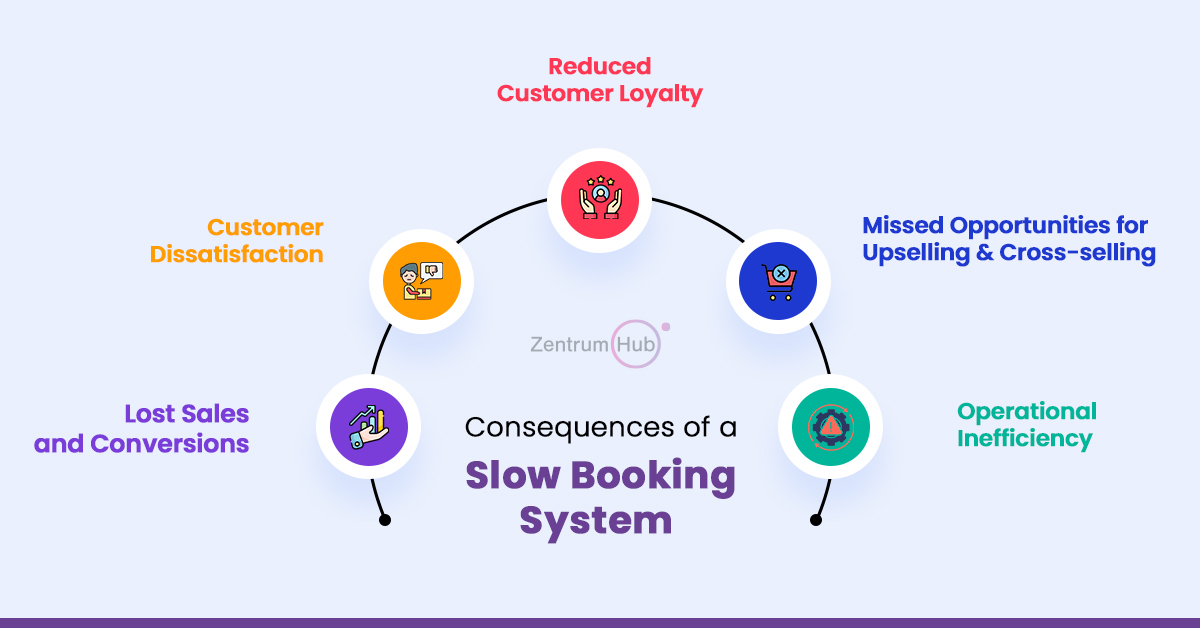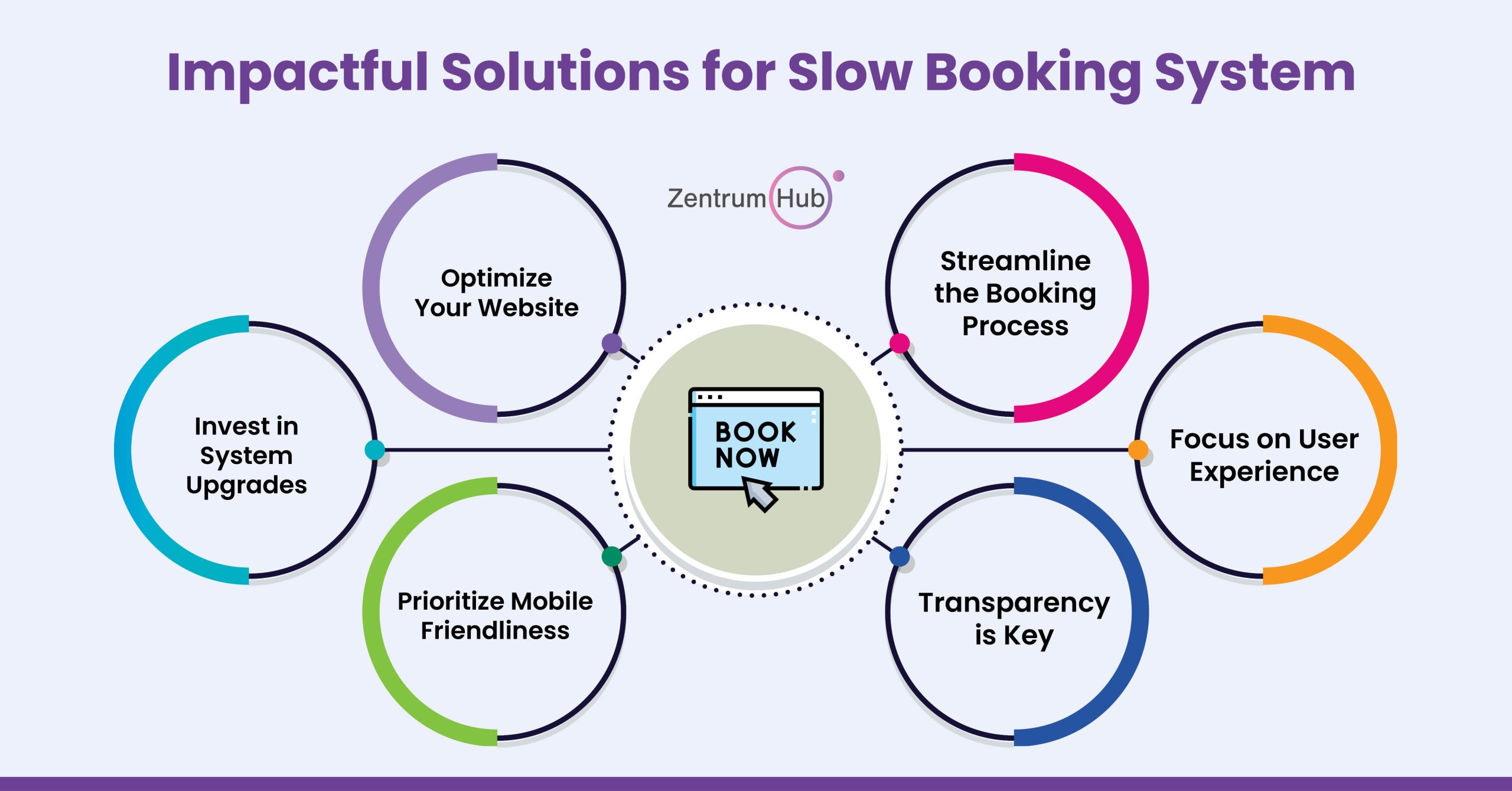Imagine a customer brimming with wanderlust, ready to book their dream vacation. They land on your OTA’s website, eager to secure that perfect flight and hotel combo. But then, the wait begins.
The page takes ages to load, the search results trickle in, and finally, when they reach the checkout stage, the system grinds to a halt. Frustration sets in, and before you know it, your potential customer has vanished into the digital abyss, likely to a competitor with a smoother booking experience.
This scenario, unfortunately, isn’t just a hypothetical nightmare. Slow booking systems can have a significant negative impact on OTAs in several ways. This blog aims to find out the solutions of such many problems that can cause your OTAs to perform poorly.

As an OTA it is necessary to have a responsive and quick booking system; however, on the flipside there are several consequences that one can face. Let’s have a look at it.
Lost Sales and Conversions: Impatient travelers won’t wait around for a slow system to catch up. Studies show that website loading speed directly affects conversion rates. A study by Unbounce found that a one-second delay in page load time can result in a 7% decrease in conversions. In the competitive world of OTAs, that 7% can translate into a significant loss of revenue.
Customer Dissatisfaction: A slow booking system creates a frustrating user experience. Imagine spending time comparing flights and hotels, only to be met with lag and delays at the crucial checkout stage. This frustration can damage customer perception of your brand and lead to negative reviews, further deterring potential customers.
Reduced Customer Loyalty: In today’s travel landscape, convenience reigns supreme. Travelers expect a seamless booking process, and a slow system disrupts this expectation. This can lead to customers abandoning your OTA altogether and seeking out competitors with faster, more user-friendly booking experiences.
Missed Opportunities for Upselling and Cross-selling: Slow booking systems can hinder your ability to upsell and cross-sell additional travel products and services. If the checkout process is cumbersome, customers are less likely to consider adding activities, travel insurance, or other travel essentials to their booking.
Operational Inefficiency: A slow booking system can create inefficiencies for your own staff. Time spent troubleshooting technical issues or manually processing bookings translates into lost time and resources that could be better spent on customer service or marketing initiatives.

What can OTAs do to combat the negative impacts of slow booking systems? Here are some key strategies:
Invest in System Upgrades: Modern, cloud-based booking systems are designed for speed and scalability. Upgrading your existing system or migrating to a new one can significantly improve processing times and ensure a smooth booking experience for your customers.
Optimize Your Website: Beyond the booking system itself, website optimization plays a crucial role. Implement techniques like image compression, code minification, and content delivery networks (CDNs) to ensure fast page loading speeds.
Prioritize Mobile Friendliness: With the rise of mobile travel booking, a user-friendly mobile experience is essential. Ensure your booking system is optimized for mobile devices and offers a seamless experience across all platforms.
Streamline the Booking Process: Analyze your booking process and identify any unnecessary steps that can be eliminated. The fewer clicks and form fields a customer needs to navigate, the faster and more efficient the booking experience will be.
Focus on User Experience: Regularly test your booking system and gather user feedback. Identify any pain points that cause delays or frustration and prioritize improvements in those areas. Remember, a user-friendly booking system is an investment, not just a technical hurdle.
Transparency is Key: If there are unavoidable delays or system maintenance periods, be upfront with your customers. Communicate these issues clearly on your website and social media channels to manage expectations and prevent unnecessary frustration.
In conclusion, slow booking systems are a big no-no for OTAs in today’s competitive travel market. By investing in system upgrades, optimizing website performance, and prioritizing user experience, OTAs can ensure a smooth and efficient booking process that keeps customers happy and conversions high.
Remember, in the age of instant gratification, speed is not just a convenience – it’s a necessity for success in the online travel industry. So, don’t let a sluggish booking system clip your wings. Act today and create a booking experience that keeps your customers coming back for more.
